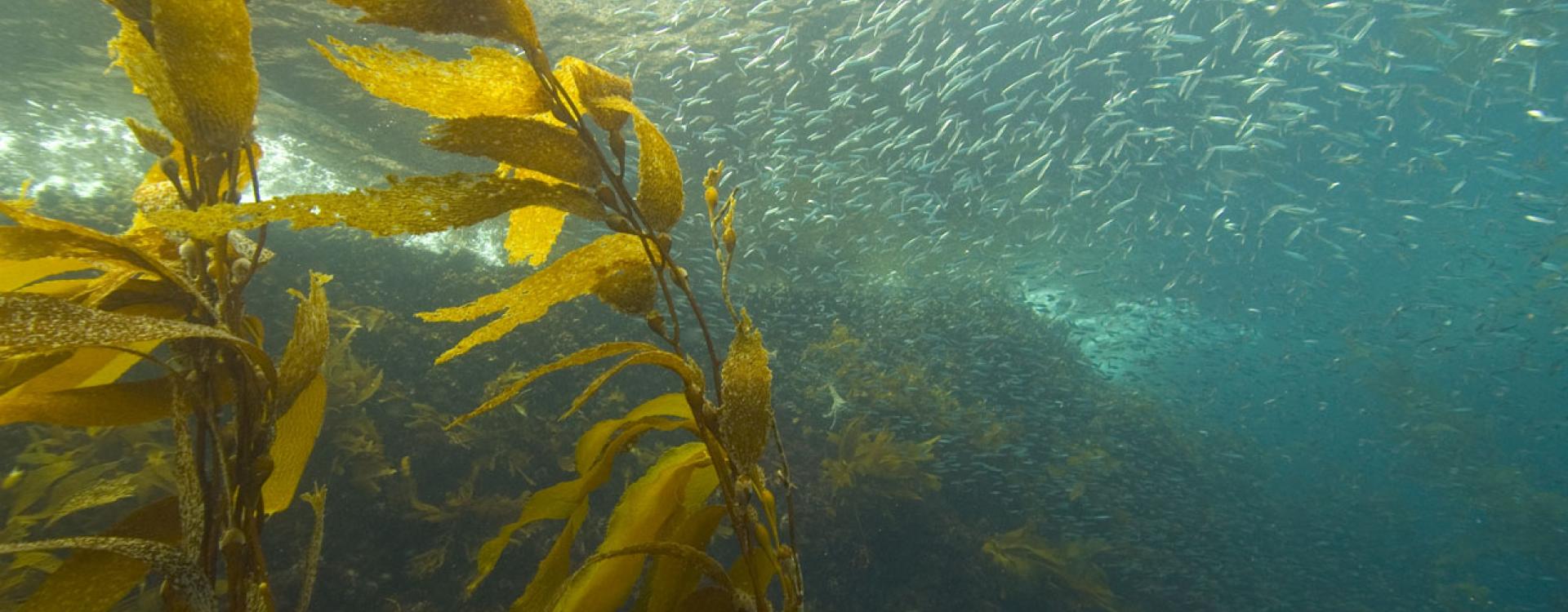New model shows that industrial fishing could promote anti-social fish behavior

Kelp and sardines, Anacapa Island, Channel Islands National Marine Sanctuary. Photo Credit: Robert Schwemmer, NOAA National Marine Sanctuaries
To better understand schooling behavior, UCSB graduate student researcher Ana Sofia Guerra and marine ecologist Douglas McCauley, along with colleagues Albert Kao from the Santa Fe Institute and Andrew M. Berdahl from the University of Washington, constructed an evolutionary fission-fusion model to simulate the behavior of individual schooling fish faced with different levels of predation, both natural and human. The model describes changes in fishes’ preference to form large schools while subjected to different levels of human fishing pressure and natural predation.
Source and Full Article
MSI Principal Investigators